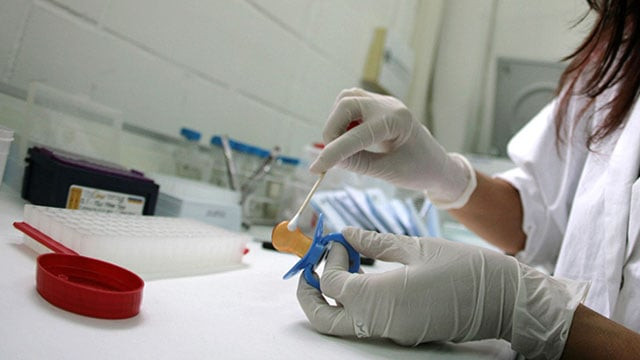DNA-editing breakthrough could delay ageing and cure incurable diseases
Technique could lead to new treatments for a range of diseases associated with the ageing process

PHOTO: AFP
Scientists used gene-editing technology to restore partial vision to blind rats, paving the way for revolutionary new treatments. The new discovery allows scientists to cure previously incurable diseases and potentially even extend the human life expectancy.
World's first baby born using 3-parent technique: report
“It should be noted, however, that although tests demonstrated improved visual responses after subretinal injection of [the DNA repair] to three-week-old … rats, the rescue was only partial and not enough to completely restore vision,” the researchers wrote in a paper about their research in the journal Nature. The technique, known as HITI, was based on the famous CRISPR gene-editing technique.
“The ability to use HITI for in vivo [in a living animal] targeted transgene insertion into post-mitotic [non-dividing] neurons is unprecedented and will help advance basic and translational neuroscience research,” the paper added. The technique could lead to new treatments for a range of diseases associated with the ageing process.
One of the researchers, Professor Juan Carlos Izpisua Belmonte, said,“We are very excited by the technology we discovered because it’s something that could not be done before.
“The possible applications of this discovery are vast.”
Professor Izpisua Belmonte, of the Salk Institute in the US, said, “For the first time, we can enter into cells that do not divide and modify the DNA at will.
Scientists not involved in the study also lauded the breakthrough. Professor Robert MacLaren, of Oxford University, described the research as a “significant advance”.
Pakistani scientists discover 30 new genes causing mental retardation
“Researchers are now using this mechanism to correct gene defects. Clinical trials are a long way off because the CRISPR proteins may cut DNA at other sites that may have untoward effects,” he said.
Further, Dr Andrew Wood, of the Institute of Genetics & Molecular Medicine at Edinburgh University, was also impressed. “This study is a really exciting development for therapeutic applications of genome editing,” he said.
“Before it can be applied to humans, it is now important to improve the efficiency with which the genome editing molecules can be delivered to the relevant cells.”
This article originally appeared in Independent.



















COMMENTS
Comments are moderated and generally will be posted if they are on-topic and not abusive.
For more information, please see our Comments FAQ